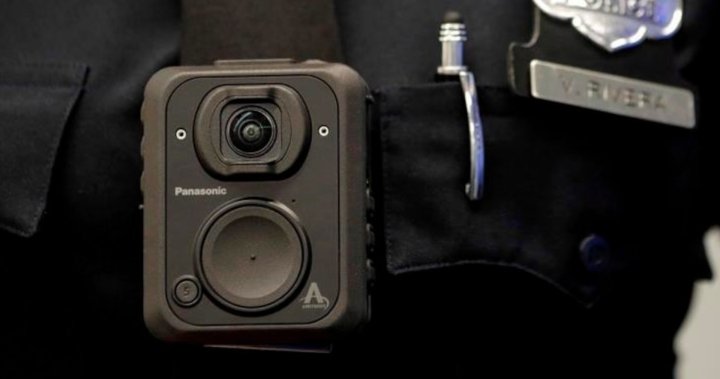I’ve spent the morning at City Hall watching tensions rise between our municipal leaders and the province. What began as a routine funding discussion has erupted into something much larger, highlighting the growing strain between Edmonton and Alberta’s government.
The dispute centers on the Edmonton Police Service’s body-worn camera program. Last month, city council approved additional funding to equip more officers with these devices – a move widely supported by community advocates and police oversight groups alike.
“These cameras provide accountability for both officers and the public,” explained Councillor Jodi McKay during yesterday’s heated committee meeting. “They’re not just nice-to-have technology. They’re essential tools for modern policing.”
But yesterday, Alberta’s Ministry of Public Safety unexpectedly announced they would withhold matching provincial funds originally promised for the program, claiming the city hadn’t properly consulted with them on implementation details.
I spoke with Police Chief Dale McFee outside his office this morning. The frustration was evident in his expression as we discussed the funding impasse.
“We’ve been planning this rollout for 18 months,” McFee told me, gesturing to the prototype camera clipped to his uniform. “Every day we delay means another day without this crucial transparency tool on our streets.”
The cameras, which cost approximately $1,200 each plus storage and maintenance fees, would require about $3.4 million to fully implement across the force. The city had budgeted half that amount, expecting the province to contribute the remainder as previously discussed.
Walking through downtown after my interview, I couldn’t help noticing the increased police presence near Churchill Square – a reminder of recent public safety concerns that have dominated local headlines. Several residents I spoke with expressed support for the body camera initiative.
“I want to know that interactions between police and the public are being recorded,” said Maria Gonzales, who works at a nearby coffee shop. “It protects everyone involved.”
The funding dispute highlights a troubling pattern of provincial-municipal disagreements that have intensified over the past year. From transit security funding to mental health response teams, Edmonton officials increasingly find themselves at odds with provincial priorities.
Mayor Amarjeet Sohi didn’t mince words when I caught up with him this afternoon. “This is about more than cameras,” he said, pausing thoughtfully before continuing. “It’s about respecting Edmonton’s authority to make decisions that affect our communities directly.”
The province maintains they support body cameras in principle but insists on greater provincial oversight of the program. Justice Minister Mickey Amery released a statement suggesting the city’s implementation plan lacks sufficient provincial input.
“We need coordination across Alberta’s police services,” the statement reads. “Edmonton can’t operate in isolation on matters of public safety technology standards.”
Community advocate Desmond Williams from the Citizens for Police Accountability sees the dispute differently. “This feels like another example of the province flexing its muscles at Edmonton’s expense,” he told me during our phone conversation. “Meanwhile, the actual work of improving police transparency gets delayed.”
City council is expected to address the funding gap at next week’s meeting. Options include redirecting funds from other police initiatives, scaling back the camera program, or challenging the province’s decision through formal channels.
For Edmonton residents, the outcome matters beyond the political drama. Body cameras have been shown to reduce use-of-force incidents by up to 30 percent in other jurisdictions, according to research from the University of Alberta’s Institute for Criminal Justice Reform.
The technology also significantly decreases frivolous complaints against officers and provides crucial evidence in complex cases – benefits that transcend political boundaries.
As I wrapped up interviews this afternoon, watching council members huddle in small groups outside chambers, it struck me that this dispute symbolizes something deeper about Edmonton’s relationship with the provincial government. Our city often finds itself fighting for resources and autonomy while navigating Alberta’s complex political landscape.
Whether this particular standoff ends with compromise or escalation remains to be seen. But for Edmontonians concerned about policing transparency, the delay represents more than political theater – it’s a tangible setback for public safety initiatives that many believe are long overdue.







